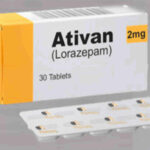What Are The Most Common Side Effects Of Keppra?

Levetiracetam, sold under the brand name Keppra among others, is a prescription medication used to treat epilepsy. It is used for partial-onset, myoclonic, or tonic–clonic seizures and is taken either by mouth as an immediate or extended release formulation or by injection into a vein.
Levetiracetam is also used in combination with other medications to treat seizure in adults and children 12 years of age or older with juvenile myoclonic epilepsy. Levetiracetam is also used in combination with other medications to treat primary generalized tonic-clonic seizures (formerly known as a grand mal seizure; seizure that involves the entire body) in adults and children 6 years of age or older with epilepsy. Levetiracetam is in a class of medications called anticonvulsants. It works by decreasing abnormal excitement in the brain.
How does Keppra work?
The precise mechanism(s) by which levetiracetam exerts its antiepileptic effect is unknown. The antiepileptic activity of levetiracetam assessed in a number of animal models of epileptic seizures. Levetiracetam did not inhibit single seizures induced by maximal stimulation with electrical current or different chemoconvulsants and showed only minimal activity in submaximal stimulation and in threshold tests.
According to studies, Keppra provides protection against secondarily generalized activity from focal seizures induced by pilocarpine and kainic acid, two chemoconvulsants that induce seizures that mimic some features of human complex partial seizures with secondary generalization. Keppra also shows inhibitory properties in the kindling model in rats, another model of human complex partial seizures, both during kindling development and in the fully kindled state. The predictive value of these animal models for specific types of human epilepsy is uncertain. In vitro and in vivo recordings of epileptiform activity from the hippocampus have shown that Keppra inhibits burst firing without affecting normal neuronal excitability, suggesting that the drug may selectively prevent hypersynchronization of epileptiform burst firing and propagation of seizure activity.
What are the most common side effects of Keppra?
Commonly reported side effects of Keppra include: infection, neurosis, drowsiness, asthenia, headache, nasopharyngitis, nervousness, abnormal behavior, aggressive behavior, agitation, anxiety, apathy, depersonalization, depression, fatigue, hostility, hyperkinetic muscle activity and mental disorders.
The list of side effects this medication causes is presented below:
• weakness
• unsteady walking
• dizziness
• confusion
• irritability
• aggression
• headache
• loss of appetite
• vomiting
• diarrhea
• constipation
• excessive sleepiness
• joint pain
• neck pain
• double vision
• nasal congestion
Some side effects can be serious. If you experience any of the following symptoms, call your doctor immediately:
• seizures that are worse or different than the seizures you had before
• fever, sore throat, or other signs of infection
• rash
• blisters on skin
• hives
• itching
• swelling of the face, throat, tongue, lips. and eyes
• difficulty swallowing or breathing
• loss of balance or coordination
Most adverse events are mild or moderate and Keppra is well tolerated, and provided stable seizure control during long-term treatment.
Keppra may cause other side effects. Call your doctor if you have any unusual problems while taking this medication.
Keppra Safety Information
Before taking Keppra,
- tell your doctor and pharmacist if you are allergic to Keppra, any other medications, or any of the ingredients in Keppra. Ask your pharmacist or check the Medication Guide for a list of the ingredients.
- tell your doctor and pharmacist what prescription and nonprescription medications, vitamins, nutritional supplements, and herbal products you are taking or plan to take. Your doctor may need to change the doses of your medications or monitor you carefully for side effects.
- tell your doctor if you have or have ever had kidney disease, depression, mood problems, or suicidal thoughts or behavior.
- tell your doctor if you are pregnant, plan to become pregnant, or are breastfeeding. If you become pregnant while taking Keppra, call your doctor.
- you should know that Keppra may make you dizzy or drowsy. Do not drive a car or operate machinery until you know how this medication affects you.
you should know that your mental health may change in unexpected ways and you may become suicidal (thinking about harming or killing yourself or planning or trying to do so) while you are taking Keppra for the treatment of epilepsy, mental illness, or other conditions. A small number of adults and children 5 years of age and older (about 1 in 500 people) who took anticonvulsants such as Keppra to treat various conditions during clinical studies became suicidal during their treatment. Some of these people developed suicidal thoughts and behavior as early as one week after they started taking the medication. There is a risk that you may experience changes in your mental health if you take an anticonvulsant medication such as Keppra, but there may also be a risk that you will experience changes in your mental health if your condition is not treated. You and your doctor will decide whether the risks of taking an anticonvulsant medication are greater than the risks of not taking the medication. You, your family, or your caregiver should call your doctor right away if you experience any of the following symptoms: panic attacks; agitation or restlessness; nervousness, new or worsening irritability, anxiety, or depression; acting on dangerous impulses; difficulty falling or staying asleep; aggressive, angry, or violent behavior; mania (frenzied, abnormally excited mood); talking or thinking about wanting to hurt yourself or end your life; withdrawing from friends and family; preoccupation with death and dying; giving away prized possessions; or any other unusual changes in behavior or mood. Be sure that your family or caregiver knows which symptoms may be serious so they can call the doctor if you are unable to seek treatment on your own. For More information Visit: What Are the Drugs to Avoid In Epilepsy?





